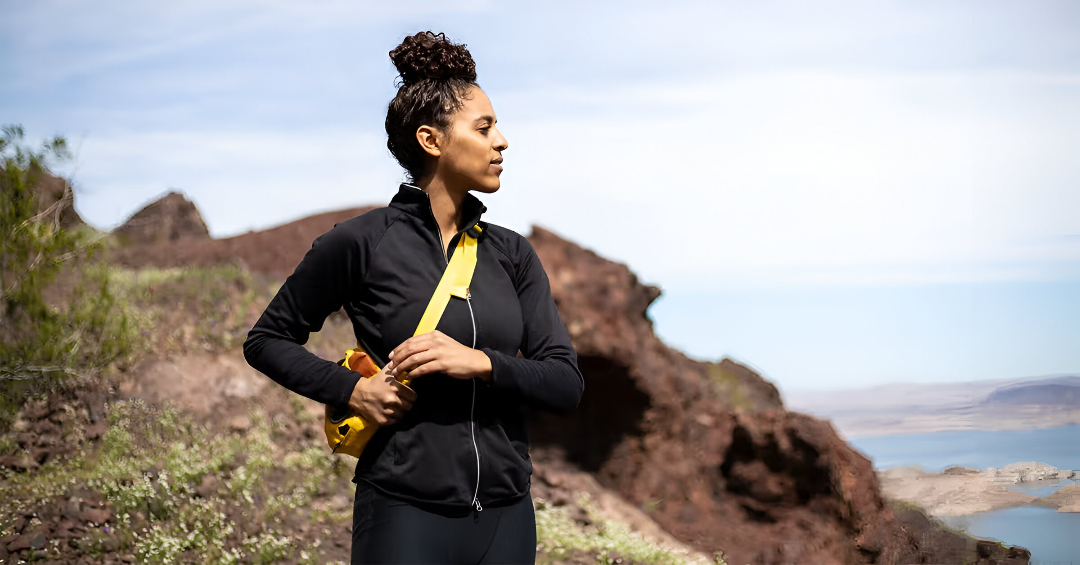What is the connection between hiking and mental health as well as physical health, and how do they complement one another? It turns out that there are many things. Hiking offers numerous physical benefits of hiking that positively impact your attitude, sleep, creativity, and academic performance.
Do you feel overwhelmed by an excess of textbooks and never-ending deadlines? Or have you ever desired to get away from the daily grind of school and participate in an entertaining pastime with your friends? What if I told you you might need to go for a stroll outside? In addition to its physical health benefits, hiking for students may provide significant mental health and intellectual benefits to all students. Every learner has periods of low focus and high stress. What if the secret to unlocking your brain’s full potential was discovered on a wooded walk rather than in a library? Let’s explore the numerous benefits of hiking and why every child should take a walk. It’s time to learn about the close relationship between hitting the books and hitting the trail.
1. Improvement of Academic Performance
You might be curious about how hiking could benefit your academic performance. Alright, let’s consider this. You may focus better and think more creatively when your mind is clearer and less cluttered. Improved academic achievement can result from increased mental clarity.
Additionally, hiking and brain function go hand in hand. Hiking improves memory, problem-solving, and stimulates the release of endorphins, which enhance mood and reduce stress. This combination of mental clarity and emotional well-being makes hiking a powerful tool for personal growth and reflection.
2. The Wilderness is Preferable to the Classroom
The best course of action while studying for hours on end is to take a break. One of the best yet often overlooked study strategies for improving pupils’ mental attention is hiking in nature. Your brain can instinctively recharge when you walk in green spaces because it is forced to disconnect from focused attention. You feel refreshed and ready to take on difficult tasks with newfound enthusiasm when you return to work.
According to research, spending time in green spaces may improve cognitive function and lower stress hormones. As a result, consider outdoor walks to be the best productivity booster. Walking strenuously outside, particularly at a slight elevation, boosts blood flow and oxygen supply to the brain.
3. An Organic Solution to Academic Stress
Let’s talk about pressure due to studying. Academic stress can be considerably decreased by exams, papers, and presentations. Hiking for stress relief is the perfect way to escape. There is a calming effect of nature on the nervous system. The rhythm of your footsteps, the sounds of birdsong, and the view of sunlight filtering through leaves all function as a form of meditation.
This makes it possible to think clearly and calmly by lowering the “noise” of tension and worry. During nature treks, this mental reset is critical for concentration. Hiking is similar to sorting the tabs in your brain. It helps you cleanse your mind. Your next study session will profit immensely from the deep, sustained focus made possible by reducing mental fatigue.
4. Developing a More Robust and Concentrated Mind
The cognitive benefits of hiking last long after you remove your hiking boots. Hiking daily is an efficient long-term memory enhancement approach. The hippocampus, which is in charge of memory and learning, is involved in active route navigation. Your ability to retain information will be enhanced by this enjoyable and practical brain training.
In the end, setting aside time for hiking to improve focus is an educational investment. Working smarter, not harder, is the goal. Therefore, tying your shoes might be your best option the next time you’re stuck on a problem. A world of improved focus, less stress, and better grades is waiting for you right outside your door.
5. Useful Advice for Students
What is the first step to hiking? The following tips will help you make the most of your outdoor experiences:
-
Get started small:
If you’re new to hiking, start with easier, shorter hikes. Increase the time and complexity of your outings gradually as you get more comfortable.
-
Be ready:
Always check the weather forecast, dress accordingly, and include essential supplies such as a first-aid kit, water, and food. Wearing high-quality hiking shoes may greatly increase your comfort and safety.
-
Go hiking with others:
Take a walk with family or friends whenever you can. It’s more enjoyable and safer. Furthermore, you will have a friend with whom to share the experience.
-
Stick to the established trails:
Stay on designated paths to safeguard the environment and yourself. This reduces your environmental impact and helps to minimize catastrophes.
Conclusion
Hiking benefits for students go far beyond physical health. The advantages range from improving academic performance and mental health to making new friends and reducing stress. Why not go hiking the next time you need a break?
If you like being outside, hiking for mental clarity could play a key part in your academic life by keeping you inspired, satisfied, and balanced. Moreover, exposure to nature can enhance creativity and reduce stress, allowing students to return to their studies with renewed focus. Embracing the outdoors can lead to a more holistic approach to education and personal development.
